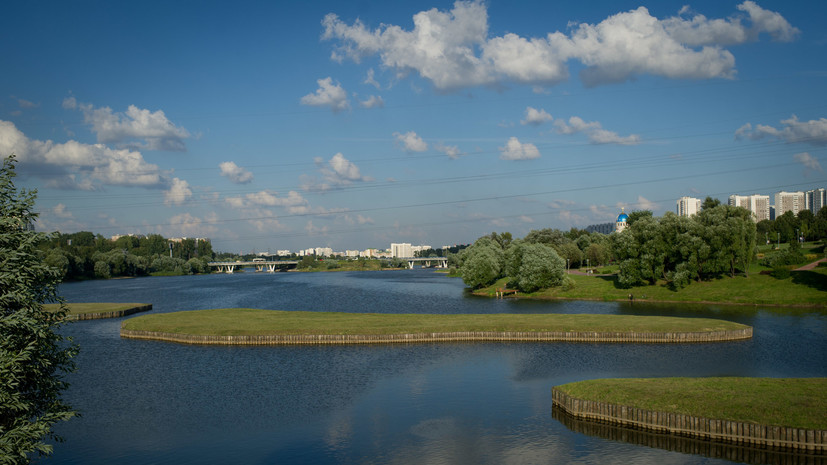The Moscow authorities decided to introduce quarantine in several districts of the city due to detected cases of influenza in wild birds. The corresponding order was given by the mayor of the capital, Sergei Sobyanin.
"In connection with the detection on May 16, 2023 of a case of wild birds with highly pathogenic avian influenza in the territory of the Brateevo district ... establish restrictive measures (quarantine) within the epizootic focus, the threatened zone and the surveillance zone ... for a period until the implementation of measures aimed at preventing the spread and elimination of the focus of highly pathogenic avian influenza," the document says.
It is specified that the epizootic focus is located in the area of the Besedinskoye highway, the threatened zone includes Brateevo, Kapotnya, Maryino, Lyublino, Pechatniki, Moskvorechye-Saburovo, Tsaritsyno, Biryulyovo Vostochnoye, Orekhovo-Borisovo Severnoye, as well as Orekhovo-Borisovo Yuzhnoye and Zyablikovo. The observation zone is the territory of the city adjacent to the threatened zone.
It follows from the order of the mayor that in the epizootic focus during the quarantine it is prohibited to treat sick birds, visit this territory by outsiders, import and export of birds, hatching eggs, as well as a number of other actions related to poultry farming.
In the threatened zone, a temporary ban is imposed on the import and export of birds and hatching eggs, the procurement and export of bird feed, the holding of agricultural fairs and other events related to the movement and accumulation of both birds and other animals.
- RIA Novosti
- © Alexander Galperin
The Moscow Veterinary Committee monitors compliance with the restrictions and the implementation of steps to eliminate and prevent the spread of the pathogen of highly pathogenic influenza.
The press service of Rospotrebnadzor said that the situation is under constant control.
"There are no risks to the life and health of residents of the capital. There are no cases of human infection with avian influenza in Moscow. The situation with zoonotic infections on the territory of the Russian Federation is under constant control," the ministry said in a statement.
Commenting on the decision of the city authorities, Vladimir Nikiforov, Doctor of Medical Sciences, Head of the Department of Infectious Diseases and Epidemiology of the Pirogov Russian National Research Medical University, in an interview with RT, said that this is a purely veterinary event that applies to birds and their owners.
"We are talking about avian influenza, not human influenza. The virus is not transmitted from person to person. A person becomes infected only through contact with chickens or other birds, but this requires some kind of immunodeficiency, "said Nikiforov.
The specialist noted that back in the fall of 2022, there was a decree on the flu shot of poultry farmers and pig farmers.
"The vaccine against modern flu, of course, will not protect against chicken, but in any case it will not allow a severe form of the disease to develop. That is, there will always be a crossover of the immune response," the infectious disease specialist added.
In his opinion, it is important to warn citizens that this quarantine is declared in terms of epizootics, and not epidemics in humans. Nikiforov stressed: "Nothing out of the ordinary happened."
From the previously published memo of Rospotrebnadzor, it follows that avian influenza is an acute infectious disease caused by a virus. As explained in the department, human infection occurs through close contact with infected live or dead domestic and wild birds.
According to the memo, the incubation period of bird flu lasts an average of five days. According to Rospotrebnadzor, the disease begins acutely with chills, fever up to 38 ° C and above, muscle and headaches, sore throat. Other symptoms mentioned by the agency that occur as the disease progresses include vomiting, wet cough mixed with blood and shortness of breath.
"It should be remembered that at sub-zero temperatures, the bird flu virus persists, but heating to a temperature of +70 ° C kills the virus in a few minutes," the memo noted.
As preventive measures, Rospotrebnadzor advised to avoid contact with domestic and wild birds in households, as well as markets and places of mass accumulation of birds in open water. In addition, it is not recommended to buy poultry meat and eggs for food in places of unauthorized trade in territories where avian influenza epizootics are recorded.

